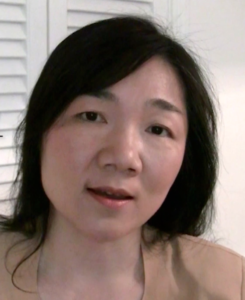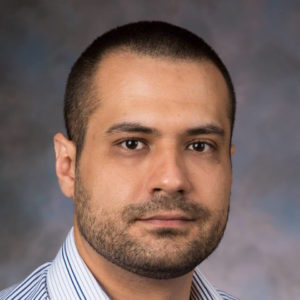Steps forward toward new treatments
The FSH Society’s board of directors voted to approve $332,906 in funding for three grant applications submitted for the August 2018 cycle. The first project investigates a novel hypothesis based on evidence that DUX4 damages muscle cells by disrupting internal quality control processes. The other projects aim to advance candidate therapies to shut down expression of the DUX4 gene, considered to be the root cause of muscle damage in FSHD.

Investigating the Molecular Consequences of Reduced NMD in FSHD Skeletal Muscle Myoblasts. Michael Dyle, PhD, postdoctoral fellow in the laboratory of Sujatha Jagannathan, PhD, University of Colorado Denver, USA. $115,937 for two years.
This project focuses on better understanding a molecular pathway that contributes to skeletal muscle deterioration in FSHD. Previous studies have found that DUX4 expression in skeletal muscle cells leads to severe perturbation of an important cellular quality-control pathway: nonsense-mediated decay (NMD). In healthy skeletal muscles, NMD plays a beneficial role in eliminating RNA molecules that give rise to deleterious, muscle-cell killing proteins (as a reminder, RNA is a cell’s “instructions” to build proteins). In FSHD skeletal muscle, the NMD pathway is severely repressed, which leads to the accumulation of destructive muscle proteins. The research team is focused on pinpointing those proteins that cause muscle cells to die when the NMD pathway breaks down. The team is also exploring the idea that restoring NMD function may slow or prevent skeletal muscle deterioration in FSHD. The results may lead to the development of diagnostic tools and new therapeutic strategies for FSHD.

Optimizing Gapmer Therapy for Facioscapulohumeral Muscular Dystrophy. Yi-Wen Chen, PhD DVM, associate professor of genomics and precision medicine, George Washington School of Medicine, and Children’s National Health System, Washington, DC, USA. $125,969 for one year.
Antisense oligonucleotide (AON) therapy is a promising approach to treating FSHD (see article in FSH Watch 2017 issue 3). However, several issues arise with AONs including: difficulty in delivering the drug into the muscles; harmful side effects and toxicities; rapid degradation in the body so that the AON can’t provide its beneficial function; and immune responses induced by the AONs. To address these issues, one can chemically manipulate the AON. One method uses 2’-O-methoxyethyl (2’MOE), and the other is called locked nucleic acids (LNAs). The 2’MOE chemistry was used in the FDA-approved treatment for spinal muscular atrophy.
In a previous study supported by the FSH Society, Chen and her collaborator Toshifumi Yokota, PhD, at the University of Alberta, showed that an “LNA gapmer” was effective in knocking down DUX4 in cell culture and improved muscle strength in an FSHD mouse model. In this proposal, the Chen lab will test 2’MOE gapmers targeting DUX4. This construct may be less potent but safer than the LNA gapmer. Yokota has shown that the 2’MOE gapmers effectively knocked down DUX4 transcripts in the test tube. Chen will compare the efficacy and safety of the 2’MOE gapmers in mice. The goal is to carefully characterize and identify the most promising candidate to develop as a therapy.

Identification of Natural Human DUX4-Targeted miRNAs and Development of a Novel DUX4-Targeted miRNA-Based Gene Therapy for FSHD. Nizar Y. Saad, PhD, postdoctoral fellow in the laboratory of Scott Harper, PhD, Center for Gene Therapy, Nationwide Children’s Hospital, Columbus, Ohio, USA. $91,000 for one year.
The FSH Society has funded Dr. Saad for past two years to investigate endogenous microRNAs (miRNAs) that could reduce DUX4 expression. So far, he has found that H19 and miR-675 reduce DUX4 expression and toxicity. This project aims to develop a potential new gene therapy based on miR-675.


Leave a Reply